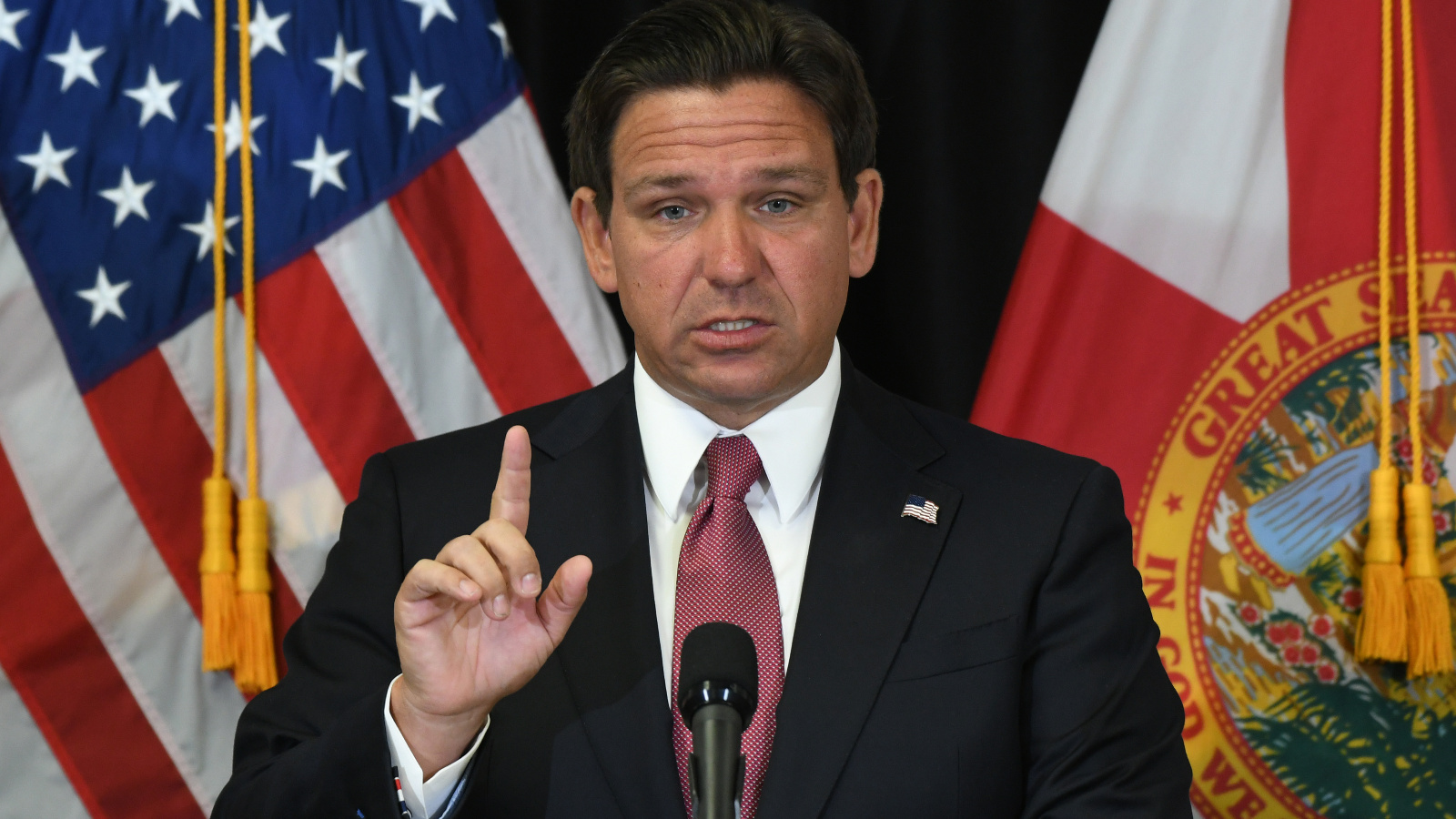South Florida suffered through brutal heat and humidity this week when the heat index (the “feels like” temperature) in Key West reached 115 degrees F — matching the record for any time of year. With rising temperatures, flooding on sunny days, and toxic algae blooms, Floridians recognize that something’s amiss. Ninety percent of residents accept that climate change is happening, according to a new survey from Florida Atlantic University, and two-thirds want their state government to do more to address the problem.
But Governor Ron DeSantis, the former Republican presidential hopeful, is moving in the opposite direction. On Wednesday, as heat records fell, he signed legislation deleting most references to the words “climate change” from the state’s laws and removing emissions reductions as a priority for energy policy. It also bans the construction of offshore wind turbines off Florida’s coasts, weakens regulations on natural gas pipelines, and prevents cities from banning appliances like gas stoves.
Along with two other bills DeSantis signed on Wednesday, the new law “will keep windmills off our beaches, gas in our tanks, and China out of our state,” he wrote on X, the platform formerly known as Twitter. “We’re restoring sanity in our approach to energy and rejecting the agenda of the radical green zealots.”
The phrase “climate change” has been swept up into America’s culture wars, viewed as a “Democrat” issue that Republicans like DeSantis want to distance themselves from. “I think a lot of it is messaging and rhetoric,” said Yoca Arditi-Rocha, the executive director of the CLEO Institute, a climate education and advocacy nonprofit in Florida. But at the same time, the law will have a real impact, she said. “This is a really good opportunity for the gas industry to push out more infrastructure and boost more expansion.”
The measure, which goes into effect July 1, will remove eight references to climate change from the state’s laws, leaving seven intact. It swaps language in a 2008 policy prioritizing the reduction of greenhouse gas emissions as a goal for the state’s energy policy with the new aim of making energy “cost-effective” and “reliable.” Arditi-Rocha questioned whether the new law would fit that objective, arguing that investing in renewable sources would better diversify the state’s energy mix. The Sunshine State already relies heavily on gas, which supplies 74 percent of Florida’s electricity. Solar provides about 5 percent.
The law also removes a requirement that government agencies purchase fuel-efficient vehicles and strips away a clause that gave state officials the authority to set renewable energy targets for Florida.
Eliminating climate-related language could send a signal to green entrepreneurs that their industries are not welcome in Florida. “I just think it puts us at a disadvantage to other states,” Greg Knecht, the executive director of The Nature Conservancy in Florida, told Grist in March. Even though Florida isn’t particularly windy, with no wind farms in operation, it’s possible that as offshore wind technology improves, it would make sense someday, had the state not banned it this week.
DeSantis is well aware of the consequences of climate change. In recent years, he’s poured money into adapting to sea level rise, signing legislation that awards $640 million for resilience projects to respond to coastal threats and $28 million for flooding vulnerability studies for every county. But some threats get a different treatment. Last month, DeSantis signed legislation that blocks cities from making local rules to protect outdoor workers from extreme heat.




